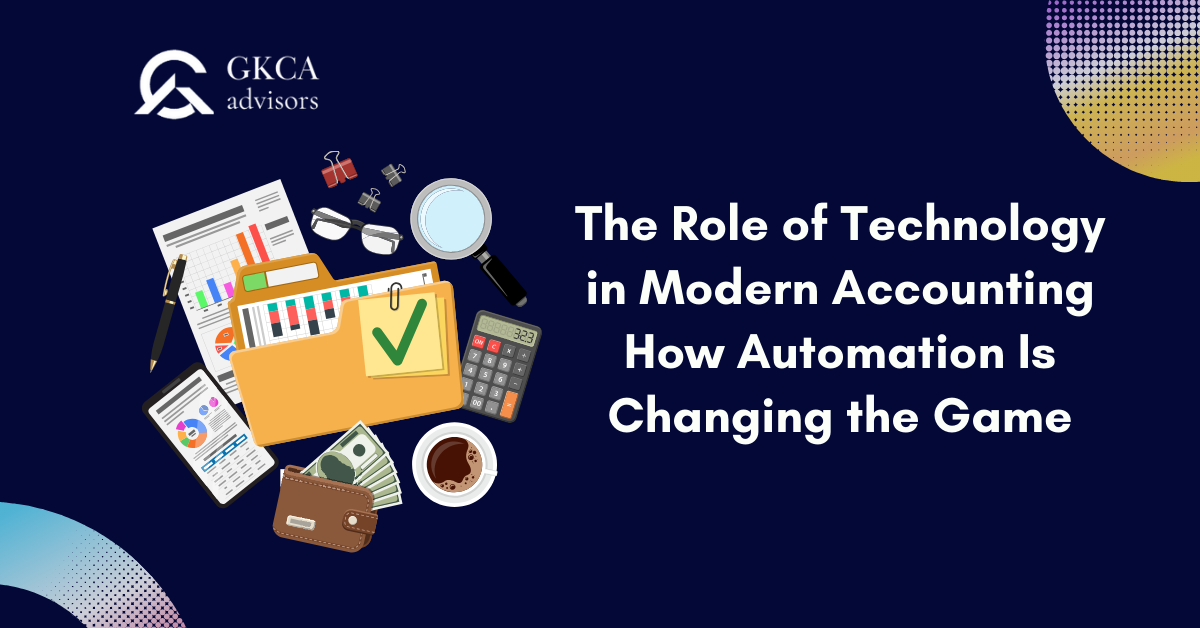The accounting industry is experiencing a revolutionary transformation driven by automation, artificial intelligence, and innovative technology. As technology continues to evolve, modern accountants are embracing new tools and methodologies that are reshaping traditional accounting practices.

The Rise of Accounting Automation
Automation technology has become a cornerstone in transforming accounting processes. Cloud-based accounting software and automation tools are streamlining operations in the world of accounting, allowing accountants to focus on more strategic aspects of their work. The implementation of robotic process automation (RPA) has particularly revolutionized how accounting firms handle repetitive tasks such as data entry.
Key Benefits of Automation in Accounting:
- Eliminates the need for manual data entry, which is a significant improvement over traditional accounting processes.
- Reduces human error significantly
- Completes tasks in a fraction of the time
- Improves efficiency and accuracy in financial reporting
- Enables real-time financial data analysis
Artificial Intelligence in Accounting
AI systems are playing a crucial role in modernizing accounting practices. Machine learning algorithms are transforming how accountants approach:
- Audit processes
- Financial reporting
- Cash flow analysis can be significantly improved with the use of accounting tools that automate data collection.
- Risk assessment is a vital component in the world of accounting to ensure compliance and efficiency, especially as technology has revolutionized the accounting landscape.
How AI is Changing the Game
The integration of artificial intelligence in accounting goes beyond basic automation. Modern accountants are leveraging technology that allows for:
- Predictive analytics
- Pattern recognition in financial data
- Automated compliance checking is a critical component of technology in accounting.
- Real-time fraud detection
- Intelligent data processing refers to the use of advanced technology in various accounting tasks.
Technology in Modern Accounting Practices
Cloud-Based Accounting Solutions
Cloud-based accounting software has transformed the accounting industry by offering significant advancements in technology, especially in automation and artificial intelligence.
- Remote access to financial data is a game changer for large accounting firms, allowing for greater flexibility.
- Real-time collaboration
- Automated backups are essential for ensuring the security of large accounting databases.
- Integrated accounting systems
- Streamlined accounting processes
Efficiency in Accounting Processes
Technology enables accounting professionals to:
- Make more informed decisions
- Focus on strategic planning in various accounting functions to enhance overall performance.
- Provide better client advisory services
- Maintain compliance with accounting standards through innovative technology in accounting.
- Implement best practices consistently to ensure that automation reduces the risk of non-compliance in manual accounting.
The Future of Accounting
As technology advances, the landscape of accounting continues to evolve. Accounting professionals must adapt to traditional accounting processes that incorporate new technologies.
- New automation tools are transforming how tasks such as data entry are performed in accounting.
- Emerging AI capabilities are revolutionizing time-consuming tasks in accounting.
- Cloud-based platforms refer to the use of technology that revolutionizes the accounting industry.
- Innovative accounting solutions
- Digital transformation initiatives are crucial for many accounting firms to stay competitive in the industry.
Impact on the Accounting Profession
The role of technology in modern accounting is reshaping how accountants work:
- Traditional accounting tasks are becoming automated
- Accountants are focusing on strategic advisory roles
- Technology enables faster and more accurate reporting, which reduces the risk of errors in accounting.
- Firms are adopting cloud-based accounting platforms
- The need for manual intervention is decreasing as automation is changing the game.
Transforming Accounting Operations
For Businesses of All Sizes
Modern accounting technology offers solutions for:
- Small business accounting
- Enterprise-level financial management
- Automated bookkeeping
- Integrated financial reporting
- Streamlined audit processes are essential in the world of accounting to enhance efficiency.
Technology Integration Best Practices
To maximize the benefits of accounting automation and artificial intelligence:
- Assess existing accounting systems
- Implement appropriate automation tools to enhance productivity in the field of accounting.
- Train accounting teams on new technologies to improve their skills in aspects of accounting.
- Monitor and optimize automated processes to enhance the efficiency of many accounting firms.
- Maintain security and compliance standards while adopting new technology in accounting, as accounting is no exception to evolving standards.
The Role of Machine Learning in Accounting
Machine learning is revolutionizing:
- Data analysis has a significant impact on accounting practices today.
- Financial forecasting
- Risk assessment
- Audit procedures have evolved significantly with the introduction of automation and artificial intelligence, which transform traditional accounting processes.
- Compliance monitoring
Conclusion
The accounting industry is experiencing unprecedented change as technology continues to advance. Automation, AI, and cloud-based solutions are not just transforming accounting practices – they’re enabling accountants to focus on more strategic, value-added services. As technology evolves, accounting professionals must embrace these changes to stay competitive and provide superior service to their clients in the field of accounting.
Accounting firms that leverage these technological advancements will be better positioned to:
- Improve efficiency and accuracy
- Reduce operational costs by leveraging many accounting tools for efficiency, especially in traditional accounting processes.
- Enhance client services by utilizing significant advancements in technology in the world of accounting.
- Make data-driven decisions
- Shape the future of accounting
